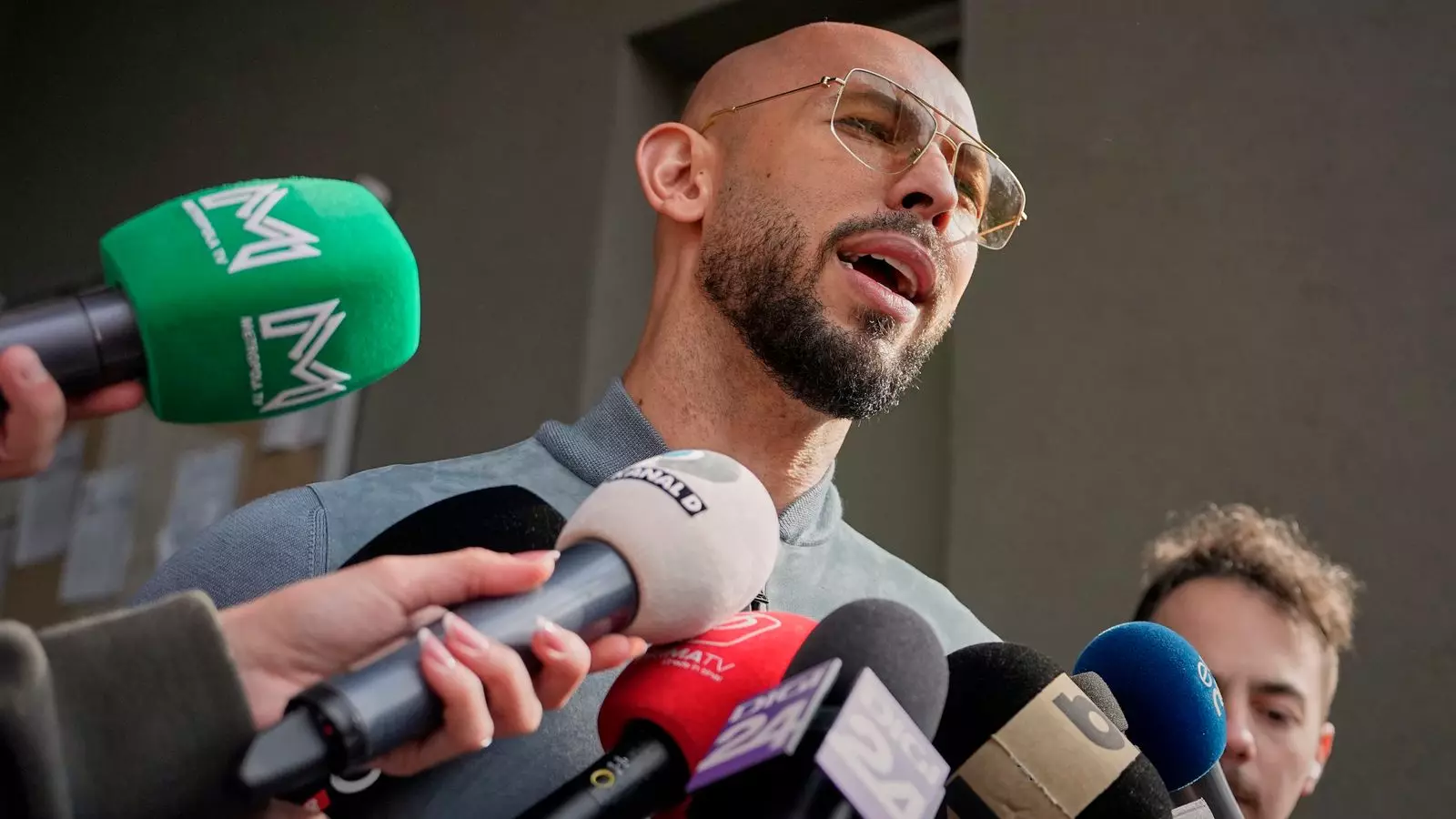In an age dominated by Instagram, TikTok, and Twitter, social media has forged itself into the very fabric of our lives, shaping not just our interactions but also our ideologies. The latest report from the NASUWT teaching union, which surveyed over 5,800 educators, paints a grim picture of how these platforms are catalyzing misogyny and sexism among young students in the UK. With 59% of teachers affirming that social media is deteriorating student behavior, it’s high time we scrutinize the nefarious impacts these platforms wield over our younger generations.
The subtle but powerful epidemic of misogyny and sexism seeps into classrooms through online influencers, many of whom promote regressive and harmful ideologies. Teachers have reported a disturbing trend where young boys, many as young as ten, actively resist engaging with female educators, echoing the sentiments of figures like Andrew Tate. This alarming shift in mindset, once a marginal phenomenon, is now beginning to shape the social fabric of classrooms — a space that should promote education and respect, not contempt.
A Culture of Hatred: The Andrew Tate Effect
Andrew Tate, a controversial figure celebrated in certain online circles, has become emblematic of a rising tide of toxic masculinity. Multiple educators cited his influence as detrimental, noting significant changes in how male pupils interact with their peers, especially women. The disheartening accounts shared by teachers are a wake-up call; one described instances of boys refusing to engage with female authority figures, a scenario that flies in the face of the egalitarian principles we strive to instill within our educational framework.
The normalization of derogatory language towards female staff, fueled by Tate’s rhetoric, raises pressing questions about the sort of values that social media is transmitting to our youth. The absence of responsible digital citizenship education leaves a void that is increasingly filled by pseudo-influencers peddling toxicity and reinforcing harmful gender stereotypes.
The Political Response: Empty Promises or Meaningful Action?
As this crisis unfolds, the political response has been decidedly mixed. During a recent discussion at Downing Street, Prime Minister Sir Keir Starmer underscored the urgent need to pull young boys away from a “whirlpool of hatred and misogyny.” However, while acknowledgment of the problem is essential, it often appears to be little more than a symbolic gesture unless backed by substantive action. The gravity of the issue demands that the political elite prioritize preventive measures, not merely react to tragedies.
Moreover, Kemi Badenoch, the Conservative leader, has brought attention to the heartbreaking impact social media can have, citing personal loss stemming from its destructive grip. Yet, while discussions surrounding banning mobile phones in schools gain traction, the question arises: Is banning technology a feasible solution when the real problem lies within the cultural implications it fosters?
Education as a Shield Against Extremism
Patrick Roach, the general secretary of the NASUWT, aptly stated that teachers cannot shoulder this burden alone. It is imperative for schools, parents, and policymakers to collaborate in developing a robust strategy that addresses not only the symptoms but the roots of this toxic influence. Education should serve as a powerful antidote to hate, transforming classrooms into safe spaces where critical thinking can flourish, promoting respectful dialogue and dismantling harmful ideologies.
This urgent culture shift will not merely sprout from the implementation of restrictive measures; it requires an entire reevaluation of how we engage with tech-savvy younger generations. Comprehensive digital literacy programs must be introduced, focusing on the ramifications of online behavior and the historical context of misogyny.
A Call to Action
The time has come for educators, parents, and society at large to rally against these insidious forces that threaten to undermine our collective efforts for gender equality. The fabric of future generations hangs in the balance, and we must act with urgency to ensure that classrooms remain sanctuaries of respect and education, rather than breeding grounds for division. As we venture further into this digital age, let us commit to building an inclusive culture that champions understanding over hatred. Only then can we hope to reverse the tide of misogyny and foster a more equitable society for all.



Leave a Reply